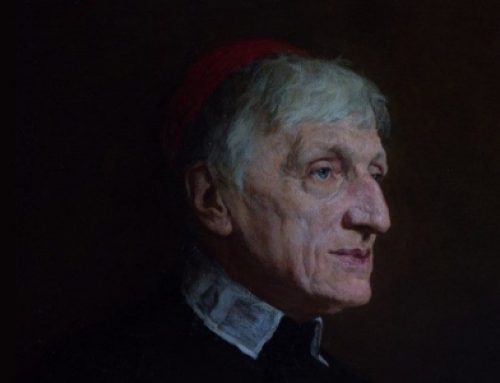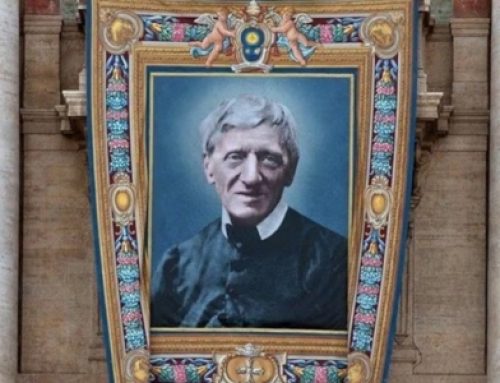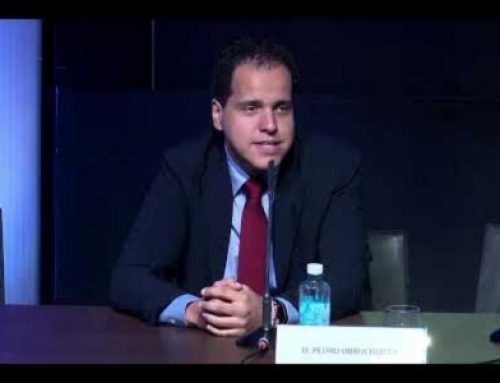Por Mark Haas
Fuente: LewRockwell.com
5 de agosto de 2025
In a dramatic twist of providence, the very work Newman undertook to defend Anglicanism ultimately led him to embrace the Catholic Church he had long opposed.
For much of his life, John Henry Newman was a towering figure in the Church of England. A brilliant theologian, preacher, and professor at Oxford, he was widely respected for his intellect and piety. As a longtime Anglican priest, Newman devoted himself to defending the Church of England against both secularism and the perceived errors of Catholicism. Yet, in a dramatic twist of providence, the very work he undertook to defend Anglicanism ultimately led him to embrace the Catholic Church he had long opposed.
Newman was a central figure in the Oxford Movement (1833–1845), a group of Anglican scholars and clergy who sought to revive the Church of England’s connection to its ancient Catholic roots. They emphasized the importance of the early Church Fathers, apostolic succession, liturgical beauty, and the sacraments—all while remaining firmly within the Anglican tradition. Newman and his colleagues believed the Church of England represented a via media, or middle way, between the extremes of Protestant reform and Roman Catholic authorityAs opposition to the Oxford Movement grew and theological disputes intensified, Newman felt compelled to defend the integrity of Anglicanism on firmer intellectual ground. In doing so, he set out to write a theological work that would distinguish Anglican teaching from Roman Catholicism while still affirming its legitimacy as the true inheritor of apostolic Christianity. The result was his 1845 masterpiece, An Essay on the Development of Christian Doctrine.
The irony is inescapable: Newman’s attempt to defend Anglicanism became the very instrument of his conversion.
As Newman studied Church history with increasing depth, he became convinced that many of the teachings he had rejected as Catholic “additions”—like the papacy, Marian devotion, and purgatory—were not corruptions but organic developments growing from the seed of apostolic teaching. In contrast, he found the Anglican claim to possess full continuity with the early Church historically fragile and theologically inconsistent.
It was in this context that Newman wrote his now-famous line: “To be deep in history is to cease to be Protestant.”
By the time he finished writing the Essay, Newman had already made up his mind. His intellectual honesty, coupled with years of spiritual struggle, brought him to the conviction that the Catholic Church was the true continuation of the Church founded by Christ. In October 1845, he was received into the Church by the Italian Passionist missionary Blessed Dominic Barberi.
The conversion stunned English society and scandalized many of his former Anglican colleagues. For them, Newman had not just left a church; he had joined an enemy.
But Newman’s journey was not one of betrayal—it was one of integrity. He had followed the truth wherever it led, even at great personal and professional cost.
In the years that followed, Newman became one of the most celebrated Catholic thinkers in the English-speaking world. He was eventually named a cardinal by Pope Leo XIII in 1879. His influence extended far beyond theology into education, philosophy, and literature. In 2019, Pope Francis canonized him as St. John Henry Newman, recognizing his holiness, brilliance, and enduring impact.
Sleep Smarter (Interna…
Shawn Stevenson
Best Price: $5.19
Buy New $19.10
(as of 07:06 UTC – Details)
Now, Pope Leo XIV is preparing to name St. John Henry Newman a Doctor of the Church, a title reserved for saints whose theological writings have contributed significantly to the universal understanding of the Faith. Such an honor would affirm what many Catholics have long recognized: Newman’s insights into doctrine, conscience, and the development of faith remain essential for our time.
Newman’s story is especially powerful today, as many sincere Protestants wrestle with questions of authority, doctrine, and historical continuity. His own journey is a reminder that the search for truth must be grounded in both faith and reason. Perhaps our prayer might be that St. John Henry Newman will continue to lead others toward the fullness of truth and the beauty of the Catholic Faith.
His life stands as a witness to the idea that God sometimes works through irony—and that those who seek to defend error in good faith may ultimately become its most effective critics simply by following the truth to its source.
This article was originally published on Crisis Magazine.




Deja tu comentario